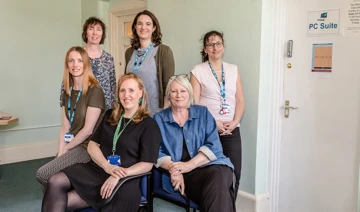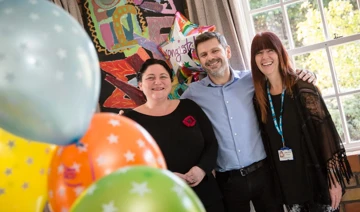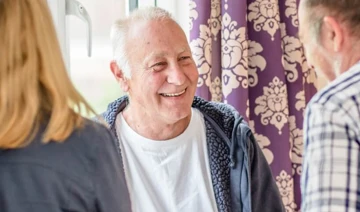Our Qi project wins Best Presentation on Wellbeing at the Cambridge Health Leaders Awards
Date added: 31 March 2022
Over the last 18 months, a team of staff at KMPT have been undergoing a Qi project looking at minimising violence and restrictive practices within acute inpatient units.
In 2020, it was brought to our Qi team’s attention that the number of violent incidents and restrictive practices on our acute inpatient units was significantly high and staff wanted to look at ways in which this could be measured and improved. A number of surveys was circulated to staff and patients to gather their views and the results highlighted that they were highly concerned about the number of incidents and wanted to find ways to create a safer and less volatile therapeutic environment.
In order to make improvements, three wards were identified to take part in the project – these were Amberwood ward in Dartford, Chartwell ward in Maidstone and Fern ward in Canterbury. Baseline data was then collected from the three wards for the period October 2020 to January and showed an average of 28 incidents of restraints.
The aim of the project was to reduce violence and restrictive practices within acute inpatient units by 50 per cent after 3 months. In order to achieve this a Driver diagram was created by the project group exploring the aim, the primary drivers, secondary drivers and the change ideas (ways in which the changes could be implemented). You can view this below:

The potential change ideas were co-produced by the project team and service users on the wards (at the time) to ensure that everyone’s ideas were captured and to make sure the project was as collaborative as it could be.
Once these initial change ideas had been gathered, a survey was disseminated to service users so that the project team could understand which of these ideas were most important to them and would therefore likely have the highest impact. The team used the Qi Pareto Principle to rank the ideas and the idea of sensory equipment was decided to be taken forward. The sensory equipment that was identified included; light projectors to play music, soothing DVDs to assist with relaxation and ear defenders all specifically identified by our service users.
When the project team presented their ideas to the wider Acute care group some other practice related change ideas were put forward to support the aims of the project. These included; enhanced recruitment of substantive staff, safety pods, introducing safety huddles, revising therapeutic planner, developing safe care champions and inclusion of professionals from various disciplines such as drama therapist, sports technicians and peer support workers that are traditionally not included in multi-disciplinary teams.
Chelsey Wahoviak, Peer support worker and key member of the project team, took it upon herself to then secure charitable funds to purchase and install the sensory equipment on the three wards. Dartford Lions Club donated £500 towards the project but wanted this money to be specifically used for the rollout on Amberwood ward.
Chelsey said: “It was really difficult to secure funds on a national and local level because of COVID, so we were really thankful to the Dartford Lions Club.”
The equipment was purchased and installed in July and August 2021. The team then measured the impact of the installation from October 2021 to January 2022, a year after the initial data was collected, to see if there has been the intended 50 per cent reduction in violence and restrictive practices. The team were delighted to find that they had exceeded this aim with a 56 per cent reduction with only 12.3 incidents being reported over the 3-month period!
Due to the huge success of the pilot we are now looking to implement these changes on all of our Acute care units. The team also put themselves forward in the Best Presentation on Wellbeing at the Cambridge Health Leaders Awards and were shortlisted, so Chelsey presented at the awards on 19 and 20 March 2022 and was awarded first prize! This is an incredible achievement for our Qi team, our Acute care group and for KMPT as an organisation.
Albert Kemp, Quality improvement facilitator said this of the win: "I am delighted that the project has been recognised for this award. The hard work and dedication of Chelsey and her team to the project has worked to ensure its success."
Well done to everyone involved in the project we are #KMPTProud of you all and the achievements of the project.



